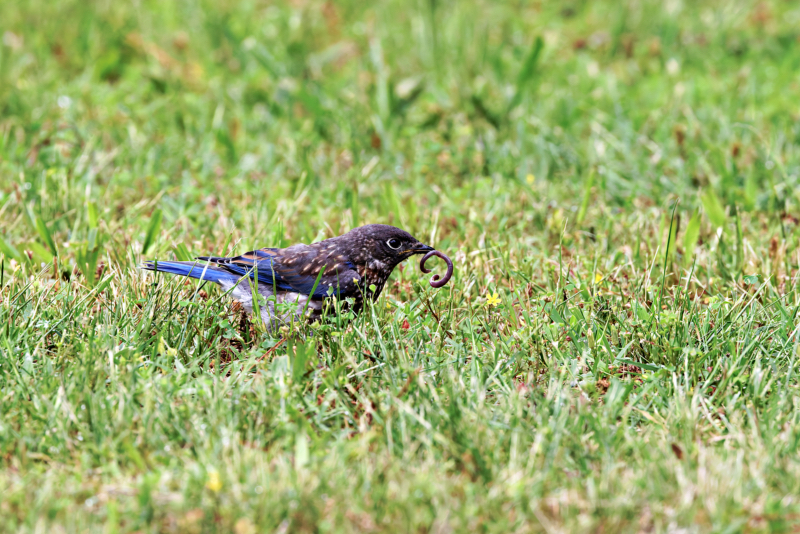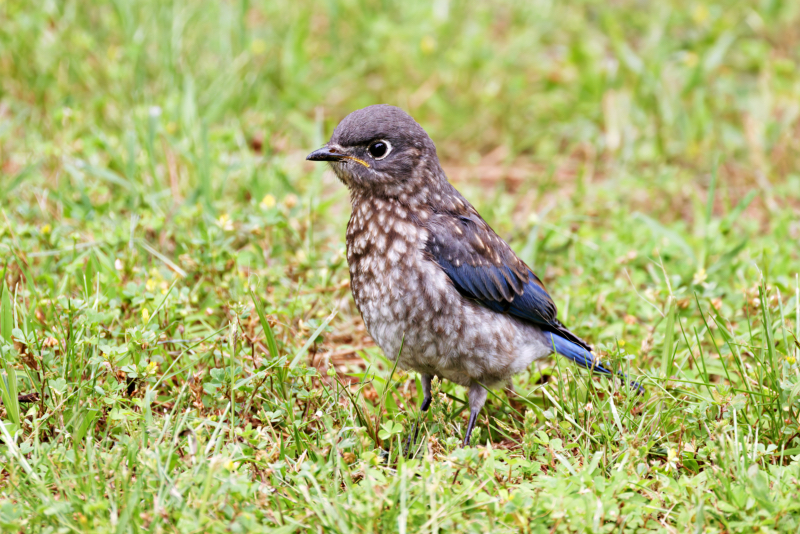Remember the captivating Eastern bluebird saga unfolding in my Arkansas backyard? Well, the story continues with an update on the three fledglings who successfully left the nest!
Fledgling Feast: From Nest Box to Backyard Bounty
Since my last post on May 11th (Eastern Bluebirds: Farewell & New Beginnings (Full Story)), I’ve had the daily pleasure of watching these young bluebirds from my deck. They’ve transitioned beautifully from relying on their parents for food to becoming skilled hunters themselves.
The photos I’m sharing today capture this exciting new chapter in their lives. One fledgling proudly displays a spider in its beak, while another tackles a juicy earthworm. (Seeing them catch spiders made me realize just how many eight-legged residents inhabit my yard!)

Healthy and Thriving
These three young bluebirds look fantastic! They’re plump, healthy, and their blue plumage is starting to shine through. It brings me immense joy to witness their successful transition to independent life.

So, How Long Will They Stay?
Naturally, I was curious about how long these little blue wonders would grace my yard with their presence. My research revealed some interesting facts:
- Three Weeks of Parental Care: Typically, Eastern bluebird fledglings spend around 3 weeks with their parents after leaving the nest. During this time, the parents continue to provide food and guidance as the fledglings hone their survival skills.
- Branching Out: After the initial 3-week period, the fledglings’ behavior can vary. Some might choose to stay in their parents’ territory for a longer time, especially if it’s late summer and winter approaches. These late broods might even stay with their parents through the winter.
- Joining the Flock: Other fledglings, after becoming independent around the 3-week mark, might choose to join flocks of juvenile birds from other families. This allows them to explore a wider range and potentially find new territories.

The Unknown But Exciting Journey
The duration a fledgling stays near its birthplace depends on several factors, including the season, habitat quality, and the number of birds in the area. But in general, they stay closely connected to their parents for about 3 weeks before venturing out on their own – either staying in the familiar territory or joining a nomadic juvenile flock.
I’ll continue to monitor these young bluebirds and share any updates. For now, I’m simply enjoying witnessing their transformation and wishing them all the best on their exciting journey towards independence!

Nice, Never have seen a bluebird fledgling much less an Eastern one. Thanks for the photos and information about the little blue birds.